How to talk about 'learning' in Russian
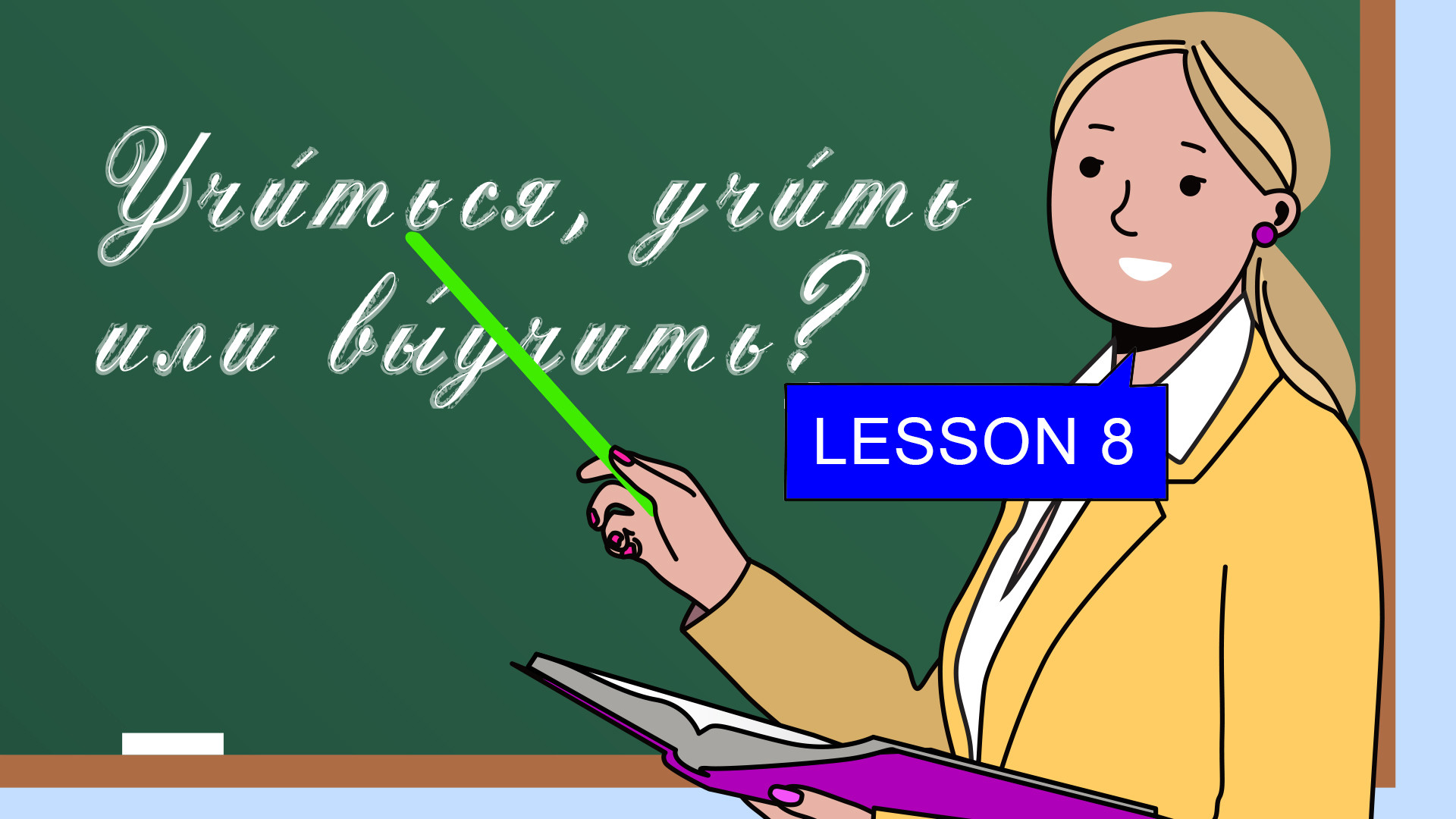
Arriving to study in Russia for the first time, foreign students will be faced with a number of puzzling language quirks. There is, of course, the use of patronymics, which they’ll have to employ, in order to avoid using words like “teacher” and “professor”; or including Saturday as a workday (that’s right, universities and some schools in Russia only give you the Sunday off); then, in winter, they’ll be faced with in -25°C (-13°F) cold and no one will give them a medal for it. But, there are myriad other nuances to consider, especially when it comes to the language itself. Today, we’ll look at another stumbling block when it comes to choosing the correct form of a word. It has to do with describing the skills or knowledge you’ve picked up in life. Let’s look at a few key verbs here.
Place of study
1. The verb УЧИТЬСЯ is used to denote the location where the studying takes place. The verb must be attached to a prepositional case. Use it when you wish to talk about the place where your studies happen - a school or a university faculty and so on.
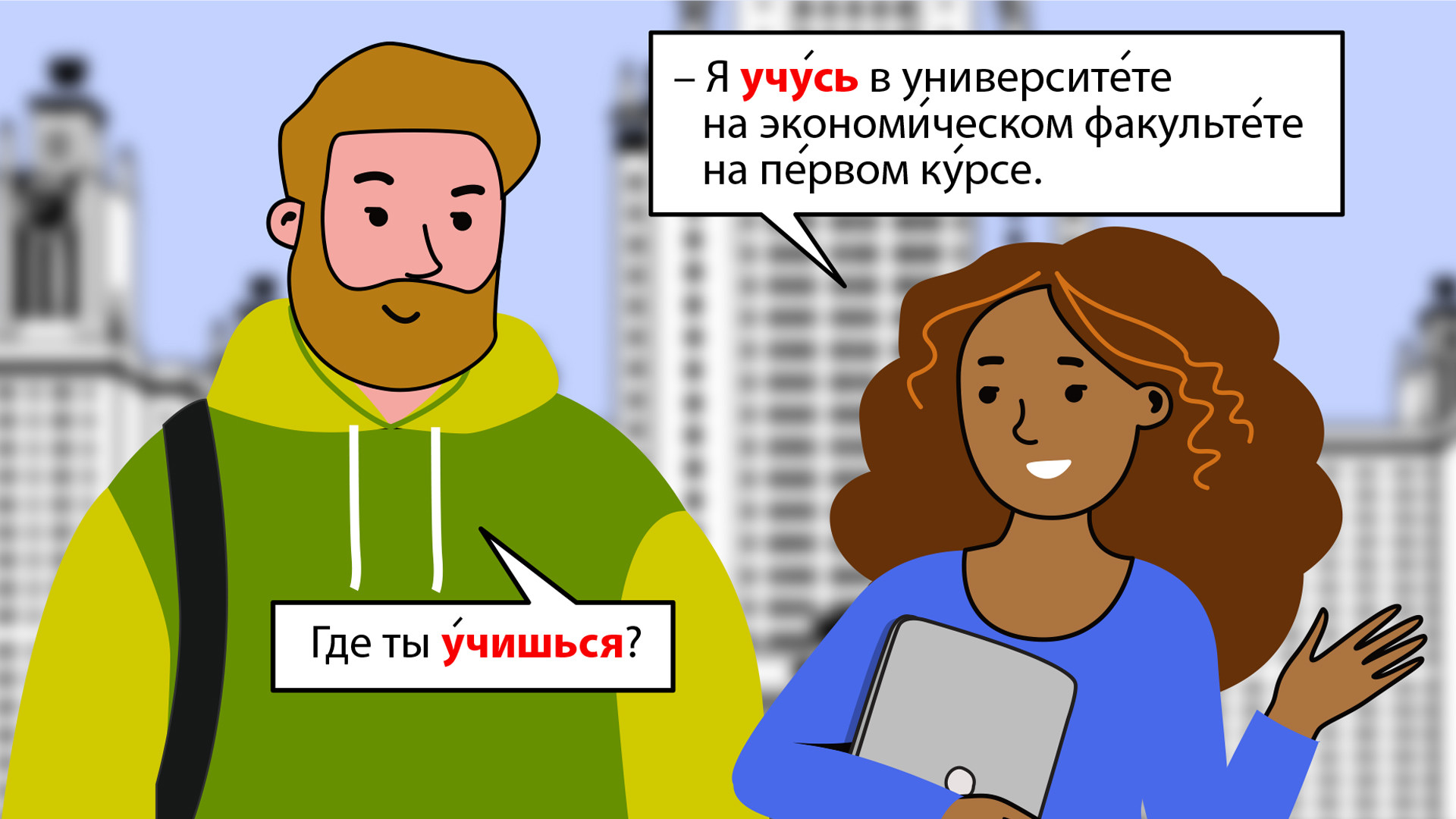
Example:
- Где ты у́чишься? (Where do you study?)
– Я учу́сь в университе́те на экономи́ческом факульте́те на пе́рвом ку́рсе. (I’m in the first year of the economics faculty at university)

Talking about hobbies and the desire to cement your knowledge
2. The verb ЗАНИМАТЬСЯ carries two meanings: а) preparing for class; b) dedicating time and effort to a hobby/skill development/area of study. In the first case, we use the prepositional case (and you don’t need to specify the place where the process takes place); while in the second case, the instrumental case must be used (always!).
Example:
а) Студе́нты занима́ются в библиоте́ке по́сле ле́кций: де́лают дома́шнее зада́ние, повторя́ют материа́л, чита́ют кни́ги. (Students are studying in the library after classes: do their home work, repeat material, read books)
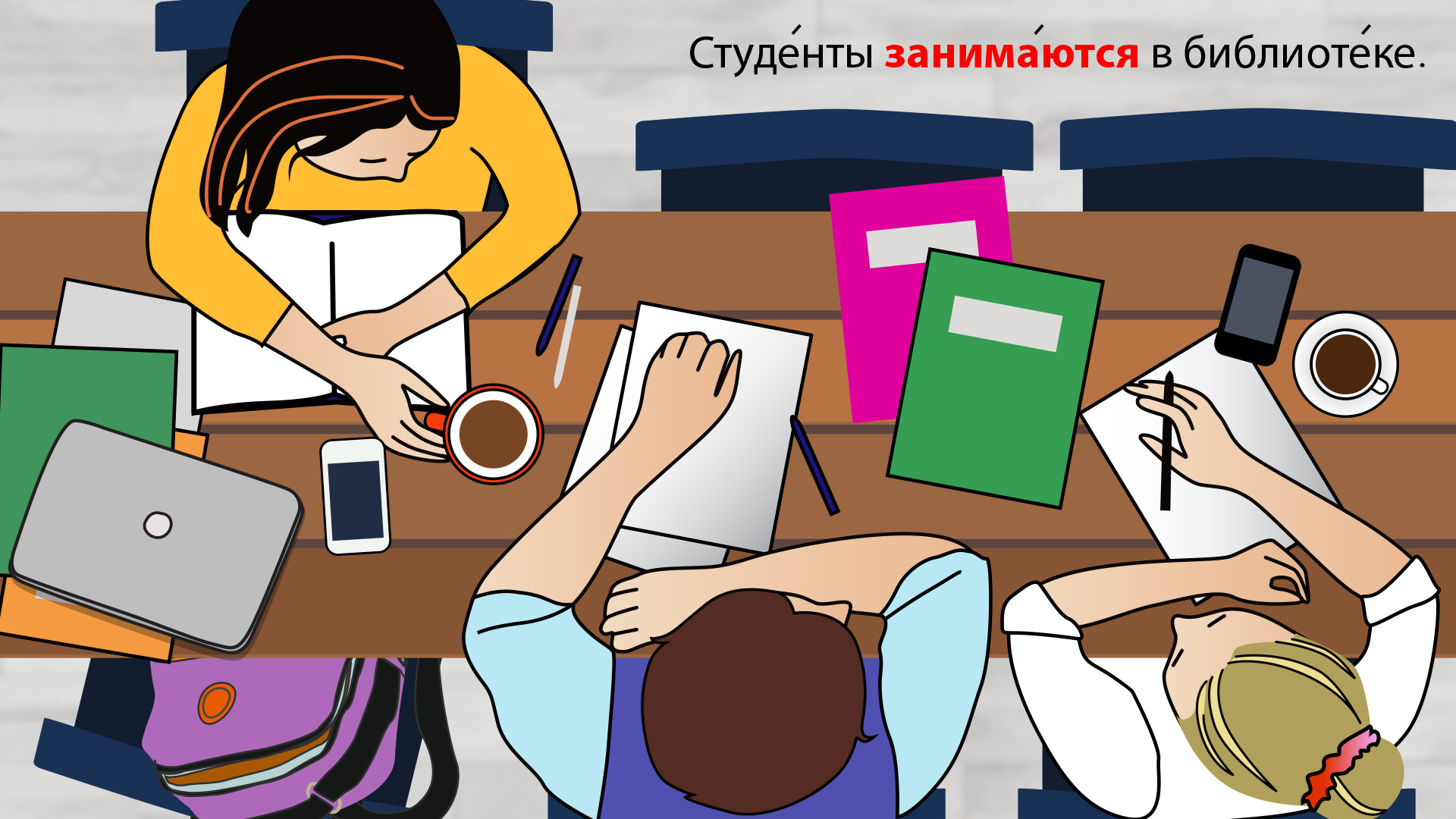
Students are studying in the library.
Alena Repkinab) – Чем ты занима́ешься в свобо́дное вре́мя? (What do you do in your free time?)
- Я занима́юсь та́нцами и рисова́нием. Это моё хо́бби. (I dance and paint. Those are my hobbies.)
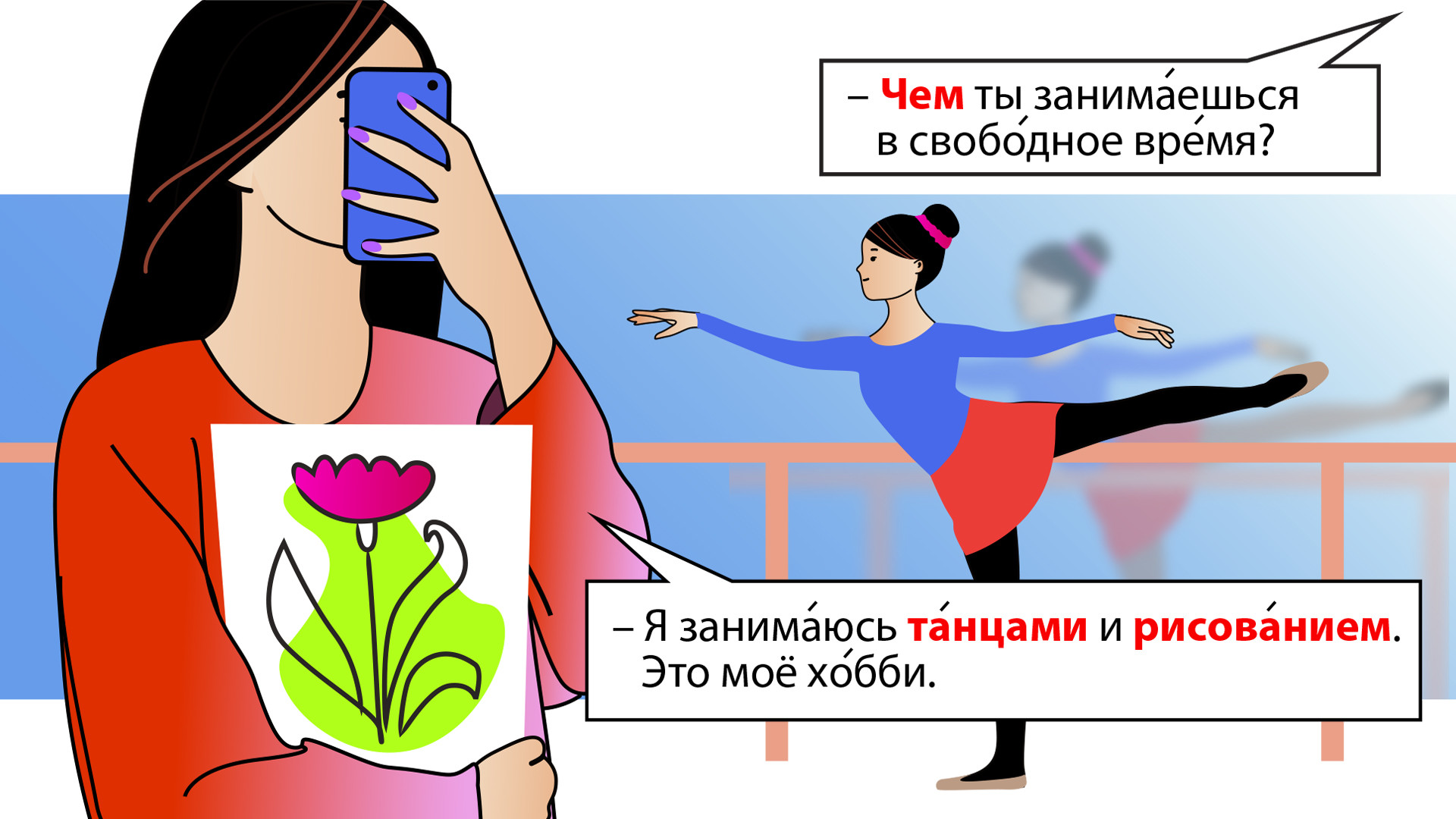

But what are we actually studying?
3. The verbs УЧИТЬ-ВЫУЧИТЬ form a perfect and imperfect pair with the following meanings: to memorize a piece of information, often by heart. These verbs require the use of the accusative case with regard to the object. Despite our reliance on memory steadily decreasing with the use of smartphones, you still need to study for class sometimes, or learn new words or a song.
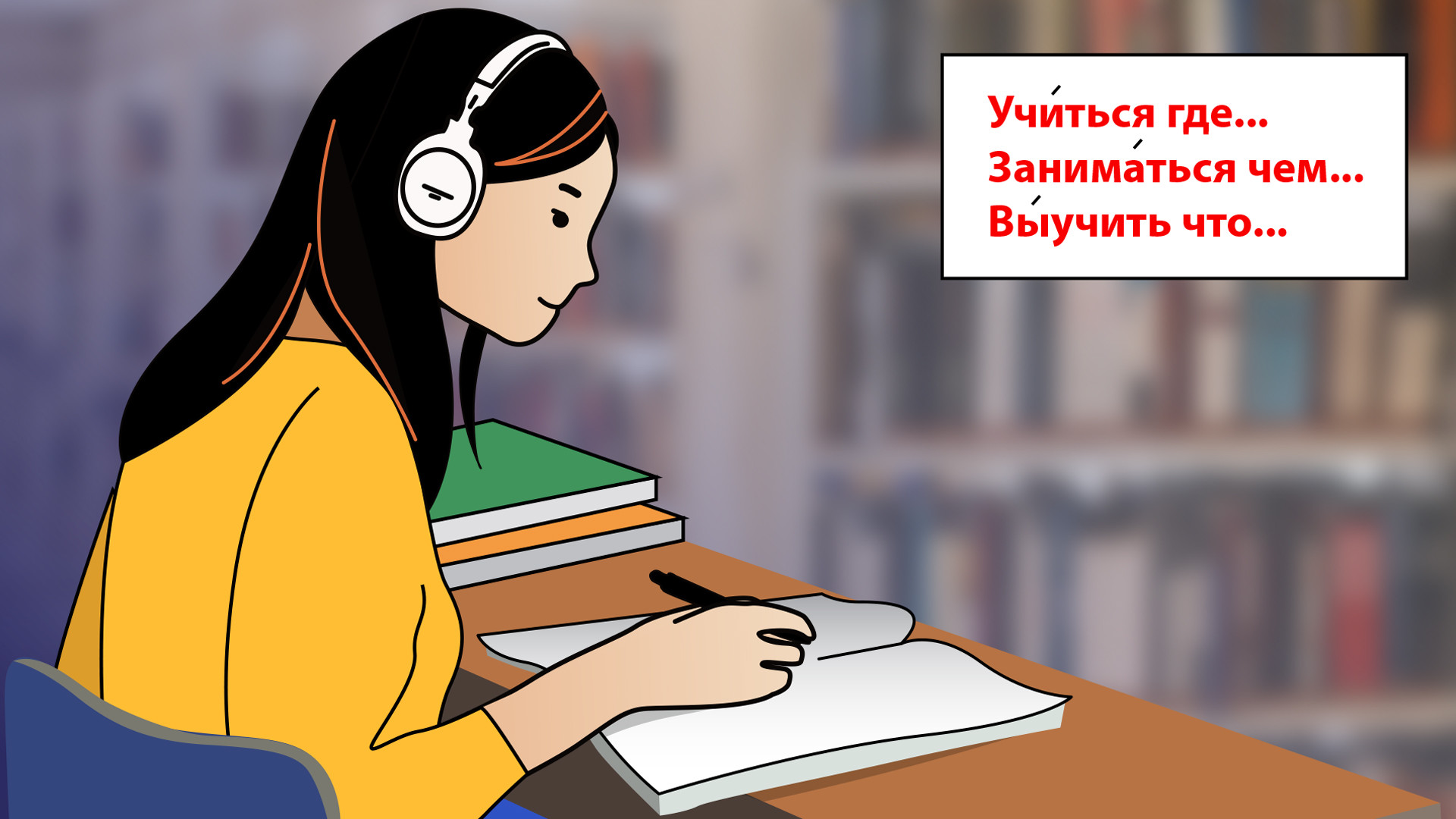
Example:
- Ты вы́учила но́вые слова́ из те́кста? (Did you learn new words from the text?)
- Да, я учи́ла их весь ве́чер и наконе́ц вы́учила! (Yes, I was learning them the whole evening and finally memorized them!)

Meanwhile, the imperfect form of the verb УЧИТЬ can be used in conjunction with the subject of study: “Мы учи́ли матема́тику, фи́зику, хи́́мию в университе́те.” However, the perfect form of the verb - ВЫУЧИТЬ, which implies that the goal of learning something has been accomplished, is not applicable in this scenario. To complete the study of something (ie. to master it) is only possible if the object of that effort contains boundaries - which something like maths or music, for example, do not. Because they are infinite pursuits. However, you can study a topic within an area. Because it is finite. That being said, Russian - or any other language - can be “mastered” (ВЫУЧИТЬ), despite seemingly belonging to the ‘infinite’ category. In this case, the verb simply denotes a very deep understanding of the subject:
Example:
- Твой ру́сский великоле́пен! (Your Russian is great!)
- Спаси́бо! Я вы́учил его́ за три го́да в Росси́и. (Thanks, I learnt it in 3 years living in Russia)
So, ВЫУЧИТЕ these new (or already familiar) verbs, ЗАНИМАЙТЕСЬ the Russian language, and УЧИТЕСЬ - doesn’t matter where, as long as it bears fruit and brings you pleasure!
If using any of Russia Beyond's content, partly or in full, always provide an active hyperlink to the original material.
Subscribe
to our newsletter!
Get the week's best stories straight to your inbox